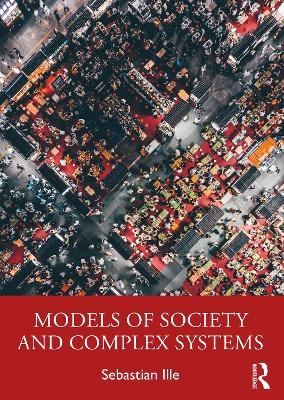
Models of Society and Complex Systems
Seiten
2022
Routledge (Verlag)
978-0-367-47397-6 (ISBN)
Routledge (Verlag)
978-0-367-47397-6 (ISBN)
Models of Society and Complex Systems introduces readers to a variety of different mathematical tools used for modelling human behaviour and interactions, and the complex social dynamics that drive institutions, conflict, and coordination. What laws govern human affairs? How can we make sense of the complexity of societies and how do individual actions, characteristics, and beliefs interact? Social systems follow regularities which allow us to answer these questions using different mathematical approaches.
This book emphasises both theory and application. It systematically introduces mathematical approaches, such as evolutionary and spatial game theory, social network analysis, agent-based modelling, and chaos theory. It provides readers with the necessary theoretical background of each toolset as well as the underlying intuition, while each chapter includes exercises and applications to real-world phenomena. By looking behind the surface of various social occurrences, the reader uncovers the reasons why social systems exhibit both cultural universals and at the same time a diversity of practices and norms to a degree that even surpasses biological variety, or why some riots turn into revolutions while others do not even make it into the news.
This book is written for any scholar in the social sciences interested in studying and understanding human behaviour, social dynamics, and the complex systems of society. It does not expect readers to have a particular background apart from some elementary knowledge and affinity for mathematics.
This book emphasises both theory and application. It systematically introduces mathematical approaches, such as evolutionary and spatial game theory, social network analysis, agent-based modelling, and chaos theory. It provides readers with the necessary theoretical background of each toolset as well as the underlying intuition, while each chapter includes exercises and applications to real-world phenomena. By looking behind the surface of various social occurrences, the reader uncovers the reasons why social systems exhibit both cultural universals and at the same time a diversity of practices and norms to a degree that even surpasses biological variety, or why some riots turn into revolutions while others do not even make it into the news.
This book is written for any scholar in the social sciences interested in studying and understanding human behaviour, social dynamics, and the complex systems of society. It does not expect readers to have a particular background apart from some elementary knowledge and affinity for mathematics.
Sebastian Ille is Associate Professor of Economics at the Northeastern University - London, UK, and Editor-in-Chief of the International Social Science Journal.
1. Introduction 2. Game Theory: Strategic Interactions 3. Evolutionary Game Theory and Dynamical Systems: Decentralised Decision-Making and Spontaneous Order 4. Markov Chains and Stochastic Stability: Understanding Cultural Universals 5. Individual Threshold Models and Public Signals: Fads, Riots, and Revolutions 6. Social Networks and Graph Theory: Small World Effects and Social Change 7. Peer Effects and Spatial Game Theory: Local and Global Efficiency 8. Agent-Based Modelling: Cascades and Self-Organised Criticality 9. Chaos Theory: Non-Linear Dynamics and Social Complexity
| Erscheinungsdatum | 07.11.2022 |
|---|---|
| Verlagsort | London |
| Sprache | englisch |
| Maße | 174 x 246 mm |
| Gewicht | 240 g |
| Themenwelt | Geisteswissenschaften ► Psychologie ► Allgemeine Psychologie |
| ISBN-10 | 0-367-47397-6 / 0367473976 |
| ISBN-13 | 978-0-367-47397-6 / 9780367473976 |
| Zustand | Neuware |
| Haben Sie eine Frage zum Produkt? |
Mehr entdecken
aus dem Bereich
aus dem Bereich
wie Affekte innere Entwicklung ermöglichen
Buch | Softcover (2023)
Klett-Cotta (Verlag)
30,00 €
Buch | Softcover (2024)
Hogrefe Verlag
34,95 €


